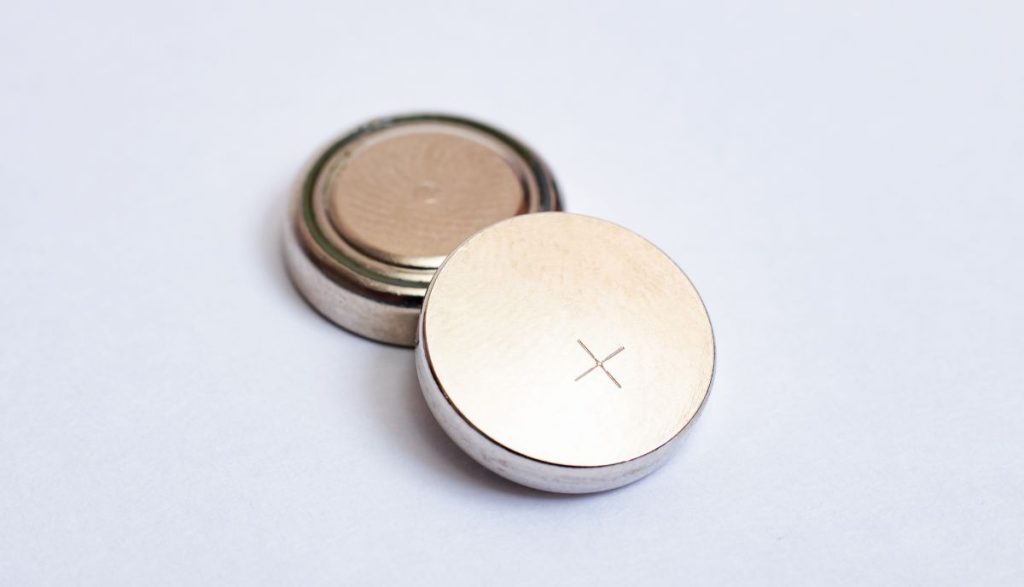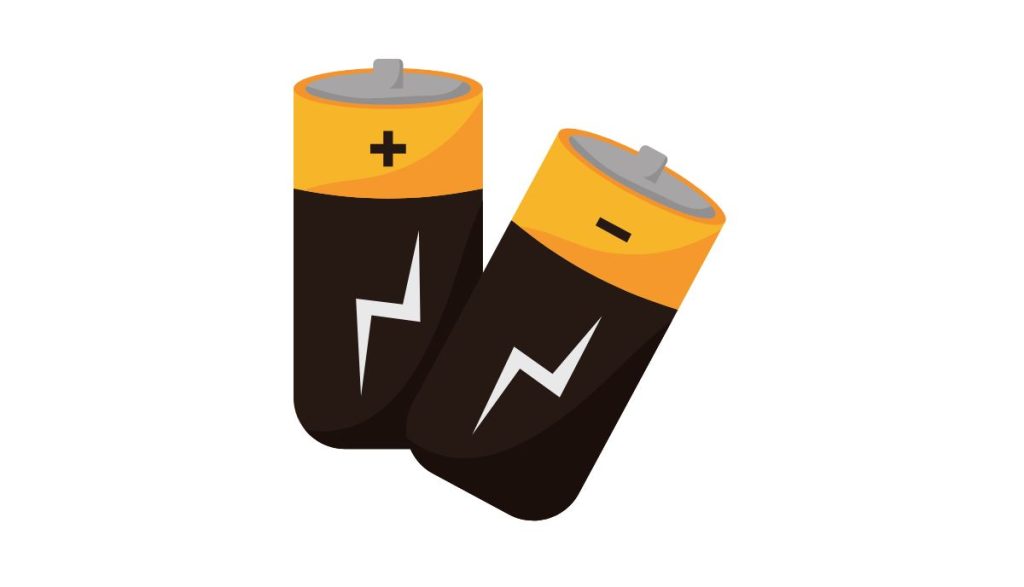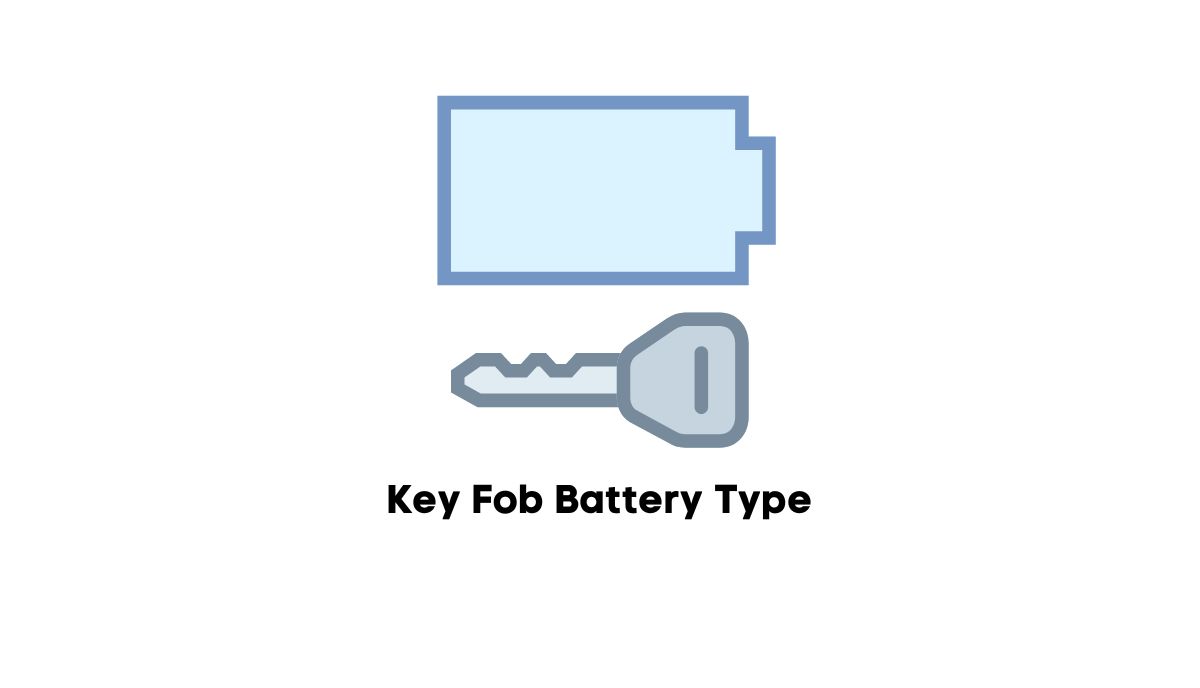Technically, the manufacturer will choose the battery. The manual will tell you the battery type to use. If you can’t find a manual, the new battery type should match the old battery type. But what if you have a choice in the matter?
What if the manufacturer expects you to select a battery type that fits your preferences? Which battery type will you choose? You can’t make a choice without first understanding the attributes, pros, and cons of each battery type.
Lithium Ion Key Fob Batteries

Lithium-ion batteries have cells consisting of a cathode, anode, and a liquid electrolyte. If you can’t imagine what that setup looks like, Lets-Talk-Science has included a diagram that displays the different parts of a lithium-ion battery. They’ve also published equations that explain the chemical makeup of these battery types.
If you don’t care about a battery type’s chemical construction (like most laypeople), this is what you need to know about lithium-ion batteries:
- Even though development on the battery type commenced in 1912, it wasn’t until the 1970s that engineers perfected non-rechargeable lithium batteries.
- Unfortunately, scientists found that lithium metals were too unstable to accommodate the workings of a rechargeable battery. This encouraged them to adopt lithium ions which were safer despite having a lower energy density than lithium metal. Sony was the first company to make rechargeable lithium-ion batteries commercially available (1991).
- A lithium-ion battery has electrolytes that carry positive lithium ions through the separator between the cathode and anode, creating free electrons in the anode and a charge at the positive current collector. That current eventually flows to the connected device.
- Lithium-ion phosphate batteries are a type of lithium-ion battery known for their safety, thermal stability, and long life cycle. But they don’t perform as well in low temperatures.
- Lithium cobalt oxide is another type of lithium-ion battery. Despite being expensive and boasting a shorter lifespan, they can deliver power over a long period.
- Lithium magnesium oxide batteries are safe and stable, and they charge quickly. But their lifespan is short.
- Lithium nickel manganese cobalt oxide batteries have a long lifecycle and a high energy density.
- Lithium titanium oxide batteries appear in UPS units, street lights, electric vehicles, and the like. They are fast-charging. But they are expensive.
Pros Of Lithium Ion Key Fob Batteries
- They are small and light, which makes them perfect for portable electronic devices.
- This battery type is low maintenance. You don’t have to cycle the battery to prolong its life.
- Lithium-ion is a high-energy-density battery. It has twice the standard nickel-cadmium energy density.
- Low self-discharge rate (1 – 2 percent per month based on the information testbook has seen).
- You can find them in various sizes because they accommodate many devices and applications, including phones and watches.
Cons Of Lithium Ion Key Fob Batteries
- Lithium-ion batteries are dangerous. This paper “A review of lithium-ion battery safety concerns: The issues, strategies, and testing standards” in the Journal of Energy Chemistry blames continuous heat and gas generation. This causes the battery to rapture. It also notes that external factors usually contribute to accidents related to lithium-ion batteries. One CNN Business Edition article highlighted an incident in New York where a lithium-ion battery started a fire that killed seven people.
- Expensive
- The battery will age regardless of whether or not you use it. The age influences the battery’s performance.
- The process of making these batteries produces greenhouse gases. According to Euro News, companies use an estimated 2.2 million liters of water to mine a ton of lithium. Additionally, these batteries can start fires and even explode if you dispose of them poorly.
- Sensitive to high temperatures.
- Airlines limit the quantity of lithium-ion batteries you can carry.
Alkaline Key Fob Batteries

Alkaline batteries are the most popular battery type on the market. T. Takamura, in the Encyclopedia of Electrochemical Power Sources, calls them the most convenient primary batteries for portable devices.
Like other batteries, these ones have an anode and a cathode. You find zinc at the anode and magnesium oxide at the cathode. The electrolyte solution is potassium hydroxide.
Excess electrons accumulate when the zinc interacts with the ions from the potassium hydroxide, creating an electrical difference between the anode and cathode and allowing the excess electrons to migrate to the cathode. The excess electrons won’t move until you connect the battery to a device.
Even though many people associate them with low-drain devices, Rei Co-op has noticed that alkaline batteries are compatible with high-drain devices. However, their life expectancy will fall dramatically.
Pros of Alkaline Key Fob Batteries
- They have a high energy density that allows them to last longer despite generating the same amount of energy as other batteries.
- While alkaline batteries have their risks, they are safer than lead and acid-based batteries.
- They are also easier to dispose of. You don’t have to adopt special disposal tools and methods to reduce their environmental impact.
- They have a long shelf life. You can keep them for seven years. They will lose five percent of their power annually.
- They are less likely to leak.
- They will work at very low temperatures. Cold climates are unlikely to debilitate their operations.
- You will find them in various sizes.
- According to Energy Theory, you can recycle these batteries. You can throw them in the trash when you’re done with them.
- Cost-effective.
- They have fewer restrictions when you carry them on a plane.
Cons Of Alkaline Key Fob Batteries
- They have a bulky construction, at least in comparison to their lithium-ion counterparts.
- They have a high internal residence that reduces their output.
- They can leak if they remain in an unused device for a long time. The corrosive compounds may harm the appliance. You should remove the batteries in dormant devices.
Performance Comparison Between Lithium And Alkaline Key Fob Batteries
- Lithium-ion batteries are generally more expensive than alkaline batteries because they use organic compounds. They also have a higher demand because manufacturers use them in so many electronic devices.
- Alkaline batteries have a nominal voltage of 1.5V per cell. Lithium-ion batteries, on the other hand, can easily accommodate powerful devices that require 3.6V per cell.
- A lithium battery will maintain its full voltage for most of its life. An alkaline battery’s voltage output will reduce gradually.
- Lithium batteries have a higher capacity. This allows them to run their devices for a longer period.
- A lithium battery’s lifespan is three or four times the lifespan of an alkaline battery.
- A rechargeable lithium battery is stable. Alkaline batteries are more likely to leak, short circuit, and overheat during recharging.
- Lithium batteries are lighter. This allows them to accommodate portable devices.
- Lithium batteries are technically more cost-effective because they last longer while maintaining their charge. A lithium battery can last 15 years.
- However, alkaline batteries are easier to dispose of. They have a smaller impact on the environment.
- Engineers associate lithium batteries with a stronger performance because their internal resistance is low.
Verdict
Lithium batteries are superior in most categories. They have better performance and a longer lifespan. But that doesn’t make them the best. The cost is a significant sticking point. Many consumers cannot afford lithium batteries because you may spend three times as much as you would on a similar alkaline battery.
Then again, you won’t replace lithium-ion batteries as frequently as alkaline batteries. This negates the cost issue. That being said, a lithium-ion battery’s hefty price tag makes more sense if you want to run high-drain devices.
Alkaline batteries are perfectly acceptable for low and moderate-drain products. Key fobs are low-drain devices. You don’t need a powerful battery to run them. And if disposal is a problem, lithium batteries will become a headache for you. Ultimately, you should get the best battery for your situation.
Impact Of Battery Type On Key Fob Performance And Signal Strength
The board in a key fob requires a specific voltage and amperage to transmit a signal. The battery type doesn’t matter as much as the battery’s specs.
That said, key fobs are no different from any other electronic device. Manufacturers design them to utilize a specific battery type. Using the wrong battery type can lead to malfunctions.
Don’t be surprised if the key fob refuses to work. This assumes that the wrong battery type can even fit in the key fob. The manufacturer will void your warranty if you damage the key fob by using the wrong battery type.

